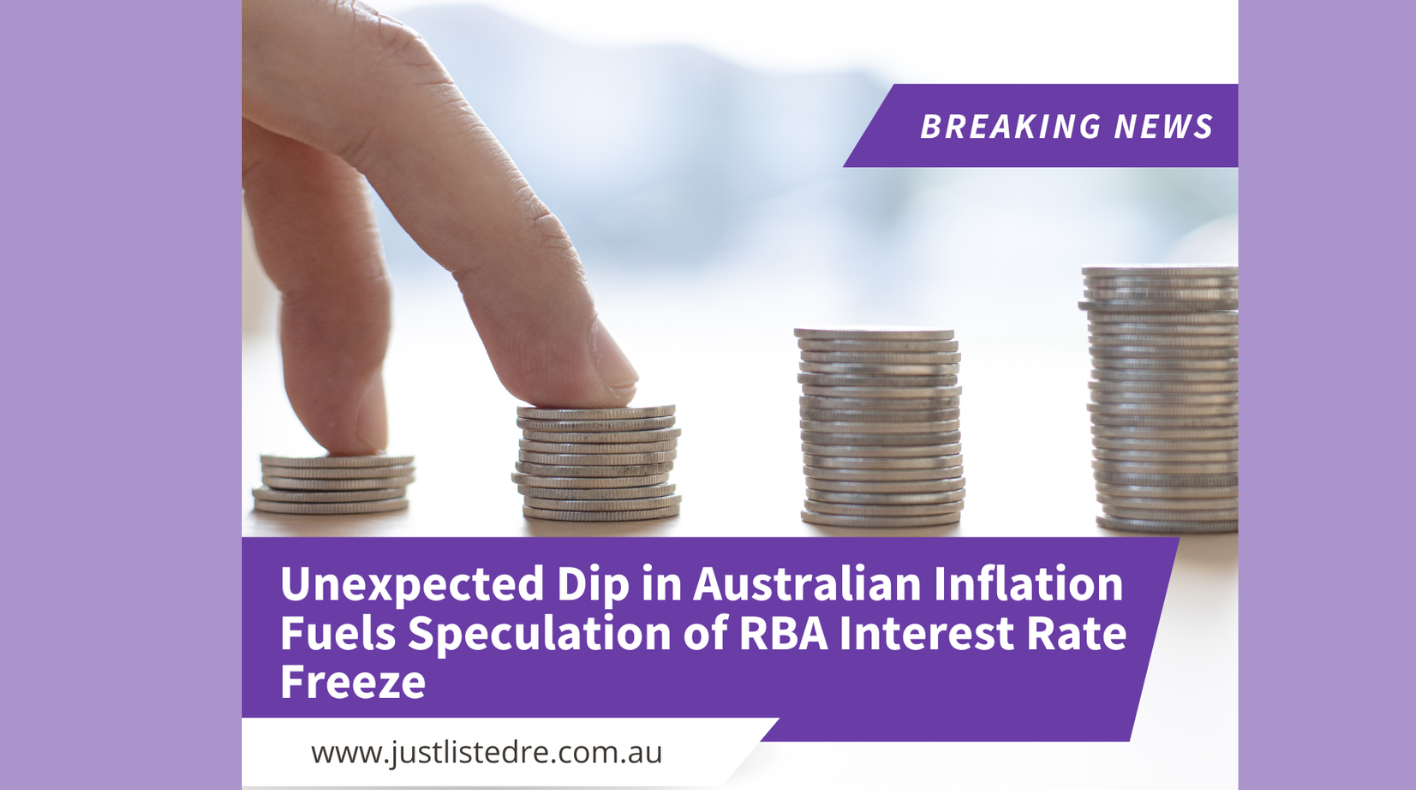Unexpected Dip in Australian Inflation Fuels Speculation of RBA Interest Rate Freeze
The Reserve Bank of Australia (RBA) is expected to hold interest rates steady at its upcoming meeting, following a quicker than anticipated drop in inflation. Latest data released by the Australian Bureau of Statistics (ABS) revealed that consumer price index (CPI), a key measure of inflation, rose to a mere 4.1% in the year ending December, marking a two-year low. This figure fell short of the financial market’s projected headline inflation rate of 4.3%.
Michelle Marquardt, Head of Prices Statistics at the ABS, noted that the country’s inflation rate has significantly dropped since its peak in December 2022. “The CPI rose 0.6% in the December quarter, lower than the 1.2% rise in the September 2023 quarter. This was the smallest quarterly rise since the March 2021 quarter,” she explained.
“Although prices of most goods and services continued to increase, the annual CPI inflation has decreased from a high of 7.8% in December 2022, to 4.1% in December 2023.” This trend indicates a slow but steady return towards inflation norm, providing the RBA with a cushion to maintain its current interest rates.
The primary contributors to the quarterly figure were housing, alcohol and tobacco, and food and beverages, which rose 1%, 2.8%, and 0.5% respectively. (Image Reference: ABS Statistics on CPI Contributors)
An interest rate hold by the RBA could have wide-ranging impacts on the Australian economy. For consumers, it means that borrowing costs, including mortgage rates, will likely remain stable. This is good news for homeowners and potential buyers who want to take advantage of the low-interest-rate environment (Image Reference: Australian Homeowners Celebrating).
For businesses, a stable interest rate environment can provide certainty and encourage investment. It can also help to keep the cost of borrowing low, which could stimulate economic activity.
However, it’s worth noting that while lower inflation can help to keep interest rates steady, it can also signal a slowing economy. If prices aren’t rising as quickly as expected, it could mean that demand is weakening. This is a concern for policymakers who want to avoid an economic downturn (Image Reference: Policymakers at RBA Meeting).
Inflation is a complex and multifaceted issue that affects everyone from consumers to businesses to government policymakers. While a lower-than-expected inflation rate can certainly provide short-term benefits like stable interest rates, it’s important to also consider the long-term impacts on economic health and growth.
As we move further into 2024, the RBA will continue to monitor inflation, along with other key economic indicators, to guide its decisions on interest rates. For now, the expectation is that interest rates will remain on hold, but only time will tell if this prediction holds true.
In conclusion, the unexpected dip in Australian inflation has added to the expectations of a hold on the interest rates by the RBA. While this could bring some stability in the short term, the long-term impacts on the economy remain to be seen. It underscores the need for careful monitoring and swift action as required to ensure the sustained health of the Australian economy.




